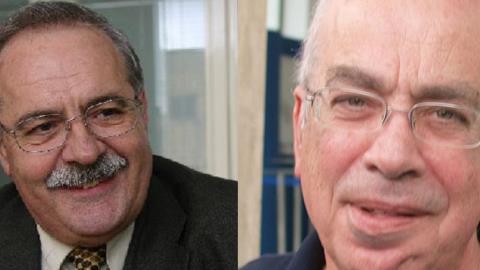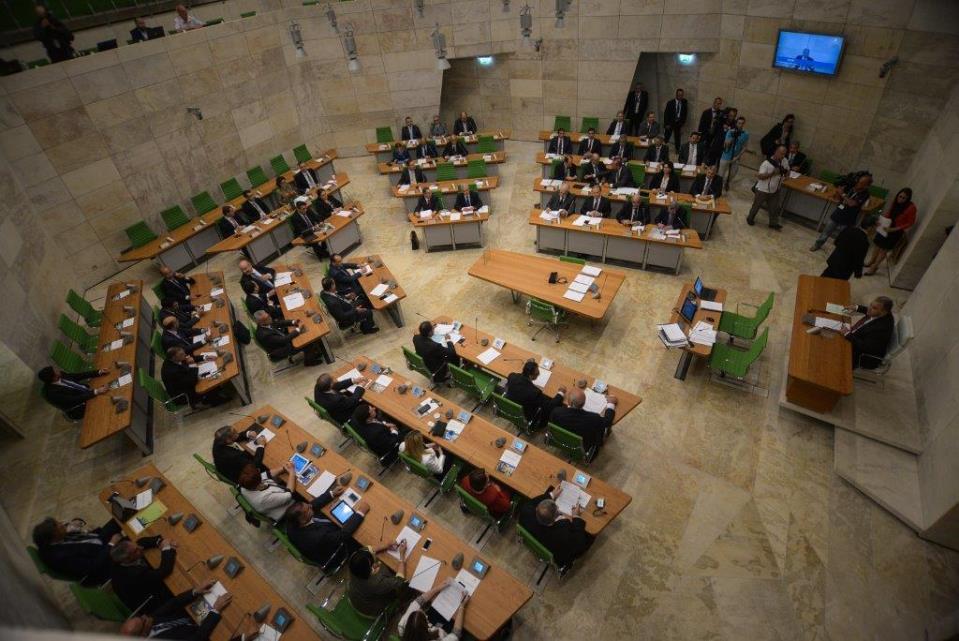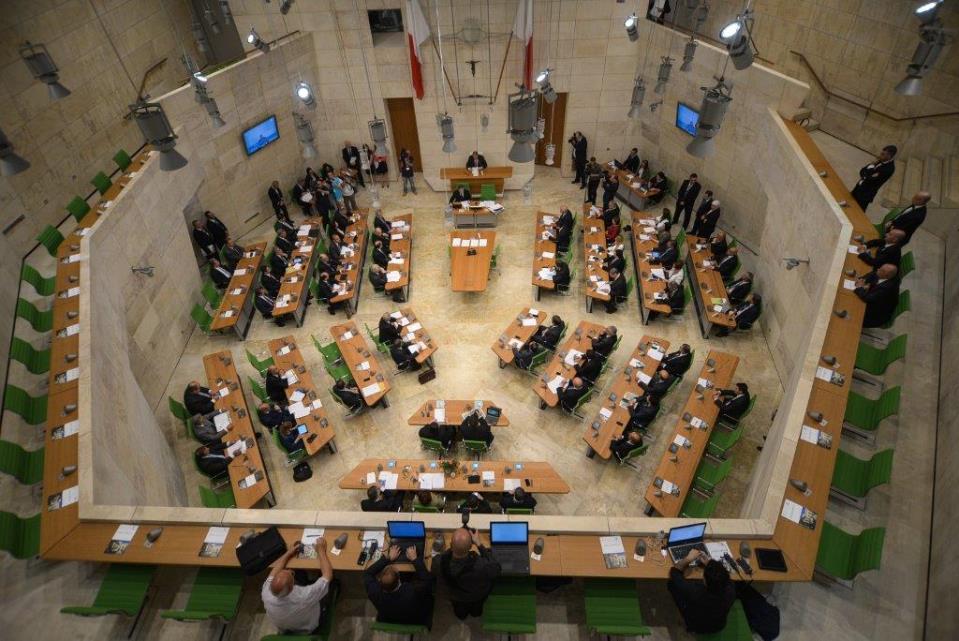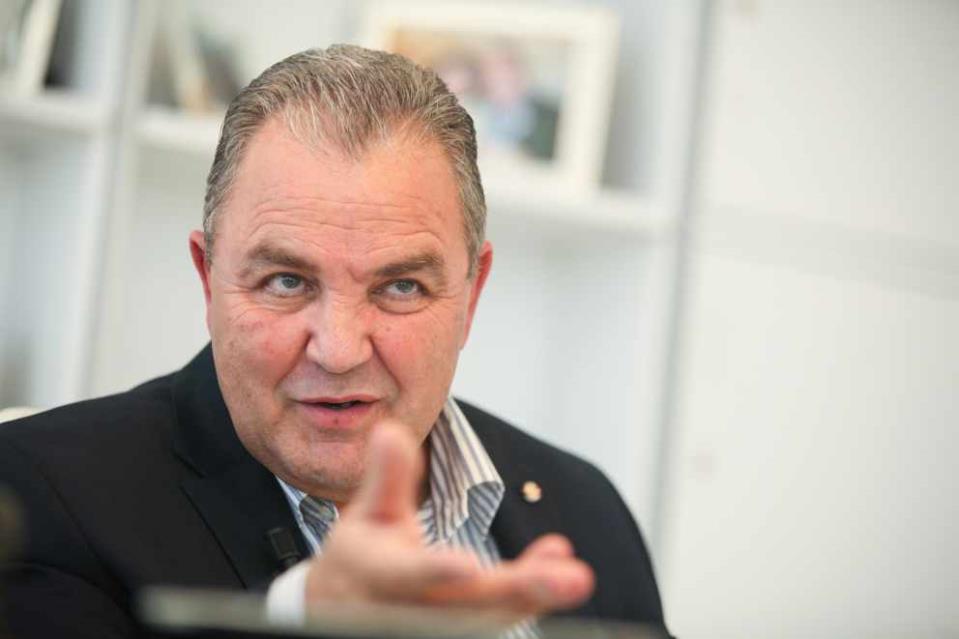Speaker of the House of Representatives Anglu Farrugia tells Duncan Barry that, as from now, he will be provided with a copy of income tax returns presented to the Inland Revenue Department by each and every Member of Parliament in order to ensure that their tax returns can be cross-referenced with the declarations of assets they present to Parliament.
In an exclusive interview with The Malta Independent on Sunday, Speaker Anglu Farrugia said that his office, along with the Commissioner of Inland Revenue, decided on such action following the Swiss Leaks scandal broken by this newspaper last year which involved, among others, two former Nationalist ministers.
Dr Farrugia explained how it had transpired that the income tax returns of the two ministers in question had not been automatically made available to the country’s highest institution, Parliament, as should have been the case.
The tax returns of the ministers implicated in the Swiss Leaks scandal had been requested by this newspaper last year from the Speaker under the Income Tax Management Act, Article 5 (b), by which MPs and newspaper editors can request MPs’ income tax returns from the Speaker’s office.
It transpired that although all MPs’ income tax returns were supposed to have been made available by the Inland Revenue to the Speaker on an annual basis, in accordance with the law, this practice had never been enforced.

The Malta Independent on Sunday had revealed that Ninu Zammit had hidden $3.2 million in a secret Swiss bank account while Michael Falzon had hidden some €465,000 in a Swiss bank account. The two ministers had repatriated the money under government tax amnesties.
The government obtained the Swiss Leaks data from the French authorities shortly after the scandal was revealed by this paper.
Prime Minister Joseph Muscat had instructed the Commissioner of Inland Revenue to investigate the data immediately and to give the documents “absolute priority” as part of an investigation conducted by the Inland Revenue Department which looked at the origins of the funds hidden by the two former ministers as well as all the other people on the list.
The outcome of these investigations has not been made public, though Mr Falzon revealed that he was formally investigated by the Tax Compliance Unit, but has not been informed of any “outstanding issues”.

Copies of income tax returns of MPs were never provided to Parliament
Dr Farrugia explained that he would also be provided with copies of all income tax returns presented by MPs to the Inland Revenue Department from 1994 onwards. He said that the Inland Revenue Department has never – at least not since 1994 up to when he was made President of the House in 2013 – presented copies of the income tax returns of MPs to him or Speakers who were there before him.
“The Commissioner of Inland Revenue is bound to provide the Speaker of the day with a copy of the income tax returns. The only difference is that, to date, this rule was never enforced and the fact that a Speaker, whoever it may be, will start being provided with a copy from now on is a first for our parliament,” Dr Farrugia explained.
Dr Farrugia said that in the event that an MP’s declaration of assets presented to Parliament was not compatible with the income tax return presented to the Inland Revenue Department by that same MP, the Commissioner for Standards in Public Life – who will be appointed as soon as the Standards in Public Life Bill comes into force – will have the right to investigate.
“The Commissioner has an additional important power, which is to investigate the veracity and authenticity of MPs’ asset declarations,” Dr Farrugia said.

The Standards of Public Life Bill calls for a Commissioner for Standards to be elected through a two-thirds parliamentary majority. The Commissioner will have the power to investigate any unethical behaviour on the part of MPs and in the event that the behaviour amounts to a potential criminal offence, the Commissioner may refer the case to the Commissioner of Police.
The Commissioner for Standards may also opt to refer less serious cases, or even grievous ones for that matter, to the already formed Public Standards Committee chaired by the Speaker and comprising an equal number of MPs from each side of the House, something which may seem to some as a loophole to get MPs who engage in certain unethical behaviour off the hook.
Dr Farrugia said that discussions on the Standards in Public Life bill – a bill for which he has strongly pushed – are scheduled to begin on 20 January, as agreed by the House Business Committee and following the report by the Group of States against Corruption (Greco) within the Council of Europe on the same bill.

In June last year, international anti-corruption watchdog Greco had expressed concern that the proposed law would still fall short in instances where an MP makes a false statement, files it late or does not submit it at all.
The Standards in Public Life Bill was unveiled in May 2014 by Dr Farrugia, who had chaired a select committee established in October 2013. But Dr Farrugia had rejected criticism by Greco that the Bill – aimed at tightening controls over MPs’ declaration of assets – was not sufficiently bold. He said he had expressed his disagreement with some of the conclusions during an evaluation meeting at the Greco headquarters in Strasbourg.
While on the subject, he said that he envisages some amendments with regard to what defines extra work outside parliament by MPs that may turn out to be conflicting with their parliamentary role, the issue of rewards and gifts to MPs, and lobbying.
Worthy of note is the fact that an MP will be given the opportunity to seek advice from the Commissioner of Standards as to whether or not he or she can engage in a particular activity before going ahead and doing so.

Parliament to become autonomous for first time in Malta’s history
Dr Farrugia explained discussions on the second reading of the Parliamentary Service Act are due to start on Monday, 11 January (tomorrow).
“Once this bill is passed, Parliament will become autonomous for the first time,” he said.
This, Dr Farrugia continued, means that Parliament will no longer have to rely on the government regarding the financial amount it receives in the annual budget announced by the government and it will be up to the Speaker of the day to produce a three-year financial plan for Parliament, outlining the amount required for three years.
He also said that, once the bill goes through, calls for applications to boost human resources and parliamentary services will in future be issued by the House and not by the government, as is the current practice.
This law, Dr Farrugia pointed out, also ensures that the Clerk of the House can only be appointed or removed through a two-thirds majority.